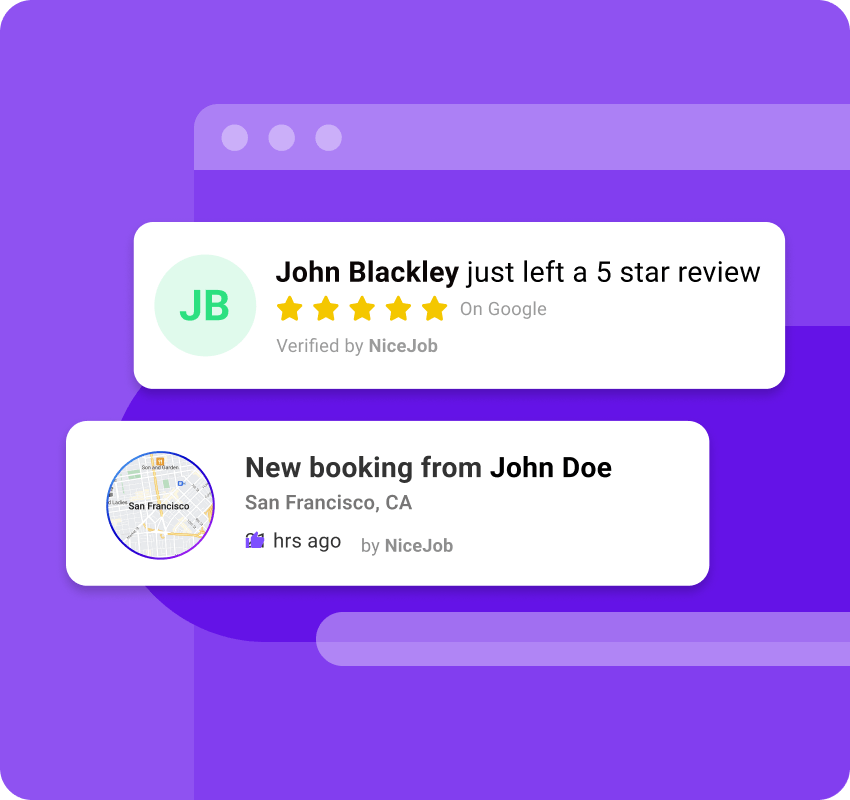•
Blog
One of the biggest struggles I’ve had as a small business owner is doing everything myself.
I finally realized that was because I did, in fact, do it all myself. EVERYTHING was in my head: procedures, pricing, customer information, inventory, and more.
I even had 2 full-time employees: an assistant and a field technician. I hired them to help me, but I still felt like I was doing it all. They were helping get work done, but it wasn't efficient; I was babysitting them.
It took a big life event for me to realize it was because I hadn’t given my employees the information that lived in my head. In hindsight, it was my fault, not theirs.
That big life event that opened my eyes? A few years ago, one of my best friends was getting married in Romania. This meant that my employees would be on their own for 2 weeks while I was overseas. It was scary knowing I would leave the shop “unattended” for that long (scary for my employees, too).
My assistant approached me one morning and said, “I need to get everything out of your head and into my notebook before you leave”.
I thought she was crazy.
We were so busy; there was no way I had time to sit down and do a brain dump. Besides, I know so much, how could I teach her what I knew??
(Spoiler alert: I was wrong.)
She persisted. Each time a new support request came in, she grabbed her notebook and watched/documented exactly what I did. She would then go back to her desk and type the information into a document on her computer. She repeated this process with my field technician to document everything he did as well. At the end of two weeks, she had typed up every situation we ran into.
Little did I know, she’d created our first operating manual.
To date, it's the best thing I’ve done to manage my business. Let me explain why creating an operations manual is important for the future success of your small business, how we did it, and a couple of examples of what we documented.
I’ll also share some resources that have helped me set up business systems to help our operations run smoothly.
If you are a small business owner looking to spend more time working on your business and less time in your truck, you must create an operations manual. It will increase efficiency, give responsibility and extend trust to your staff, and free up your time as the business owner to work on other things.
In my case, the day came for me to leave for my friend’s wedding.
I was able to enjoy the wedding and feel confident that my employees had the information they needed to succeed while I was gone.
To be honest, we did have one issue come up while I was away. But, since we had documented everything, my assistant was able to reach out to the support company, schedule a technician to fix the broken piece of equipment, and get everything up and running.
The real epiphany didn’t hit me until after I returned.
When I got back from Europe, my employees continued handling and responding to customers as if I wasn’t there.
They would answer calls, make repairs, and support our clients on their own. Granted, they’d check in and sometimes escalate an issue to me, but for the most part, we were operating like a “real” company.
It was freeing and empowering for me to get that information out of my head. It was like I had turned a key that started a machine. They each knew what they were supposed to do, AND they were able to do it without me.
From that point on, I was able to rely more on my employees so that I could focus on growing the business.
Discover the power of effortless review generation and watch your business soar to the top of local rankings.
Get 4x More Reviews
Here are some examples of what to include in your operations manual that will help your staff manage day-to-day operations of a small business:
My two biggest lessons were to trust my employees and document everything.
If I’m being honest, the trust thing is the harder of the two tasks for me as a business owner. But if everything gets documented, then I can trust my employees to get the job done.
It’s empowering, and has been a major step towards success for my small business.
Jobber: We added jobber last year which was a huge help with things like scheduling, quoting and invoicing.
NiceJob: I use NiceJob to collect reviews and customer feedback, and they get displayed right on my website.
Quickbooks: I use QuickBooks for my accounting. It lets me quickly run reports for profit/loss, balance sheet, and record expenses.
SendJim: I have SendJim integrated with Jobber. As soon as the client pays an invoice I have SendJim configured to send a thank-you card and a box of brownies to the client. It also allows me to send postcards, letters, and gifts at anytime, right from my phone.
Learn the proven strategies of top-rated businesses who've skyrocketed their trust, credibility, and sales.
Get the Blueprint.png)
About the author:
Luke Jensen has been a small business owner/operator since 2006. His current focus is on his lighting business, Lewes Lighting LLC. He's also the northeast Master Licensee for WeHangChristmasLights.com as well as a certified trainer for WHCL/CLIPA. He has trained hundreds of new installers in the past few years.
